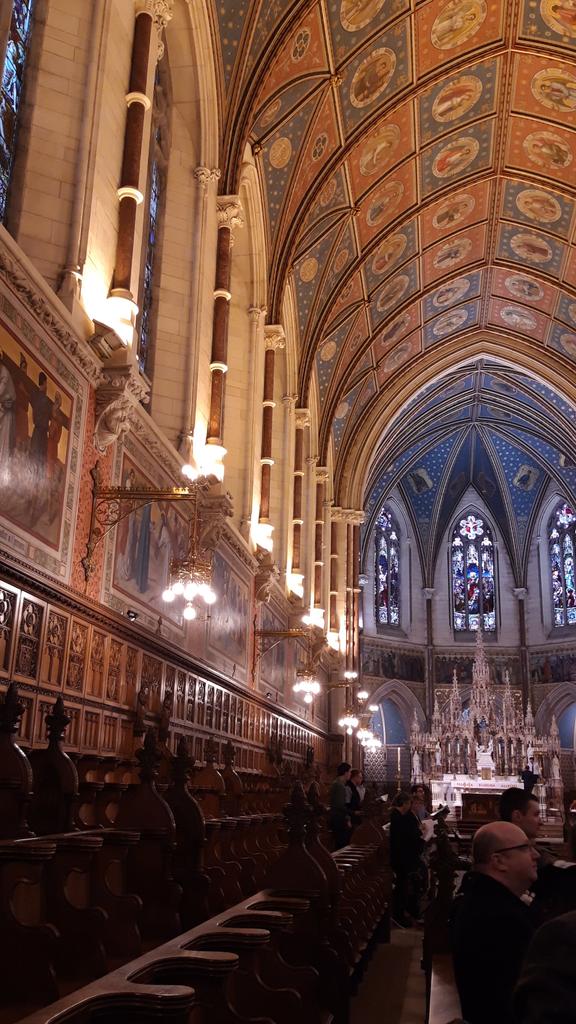On the Futures of Thinking Christianly

I was happy that I could attend the conference on “The Future of Christian Thinking.” Here are some primary reflections:
-
There were many good papers, including those by Kerr, Gonzales, Wolfe, and Schindler. I knew I would enjoy Hart, Williams and Milbank but I was really surprised by encountering Desmond and O’Regan. I’m sure I’ll return to their thinking regularly.
-
I was positively struck by the hospitality and generosity at the conference. At some conferences there is a clear, if unspoken, rivalry or the sense that as a ‘simple phd-student’ your have to compete for the attention of the ‘big people.’ This was not such a conference, quite the opposite. I received some valuable feedback and I enjoyed the process.
-
I still have to process my notes and I will certainly watch some of the videos once they are released.
Although I think that the conference was really well done, there are some questions which were not explicitly addressed, but which I think should have been included somewhere, somehow:
-
what is future in relation to thinking? Do we actually know what future is? Do we know what we can expect? Do we know what we are looking for? In my mind I kept trying to ‘fix’ the title of the conference to “The FutureS of Christian Thinking.” I have the feeling that suggesting that there is only one future for Christian thinking we might close ourselves for possible futures, including those in which we will ultimately find ourselves.
-
The other critical question regards the institutional contexts within which Christian thinking of the future will take place. Several people mentioned ways in which ‘academia’ is not conducive to the kinds of thinking that we are after. While it is important to keep our cultural memory in place in academia as long as we can, it is becoming increasingly difficult to organise and finance within the current academic systems. So, why are we not talking about alternative academic structures? Why are we not talking about non-academic ‘scholas’, connected to churches and cathedrals? It seems to me that philosophy/theology is the only disciple which could pull this off, yet I did not hear anything about this. Could it be the case that we are still thinking the future of thinking too much in a dis-embodied way? But should thinking in the context of worship not warn us against that? Or could it be the case that some of this thinking is taking place in institutional contexts in which it is still possible to think or hope that ‘secularisation’ will pass us by? It won’t and it is past time to start thinking about some alternatives.
(Photo: Chapel of Maynooth)
